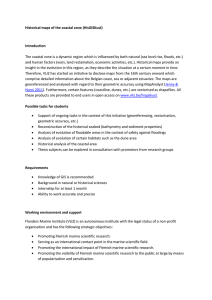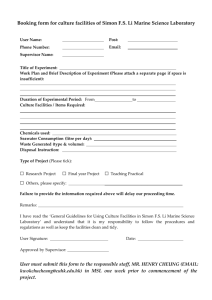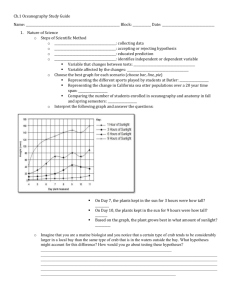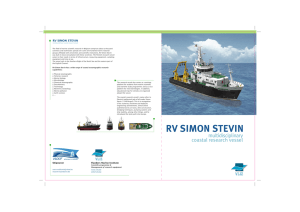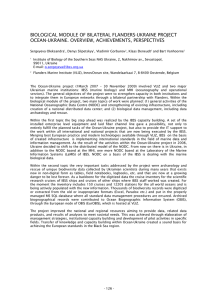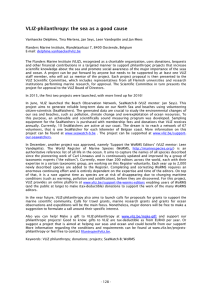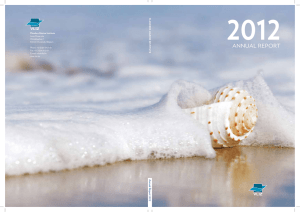VLIZ Research Infrastructure
advertisement
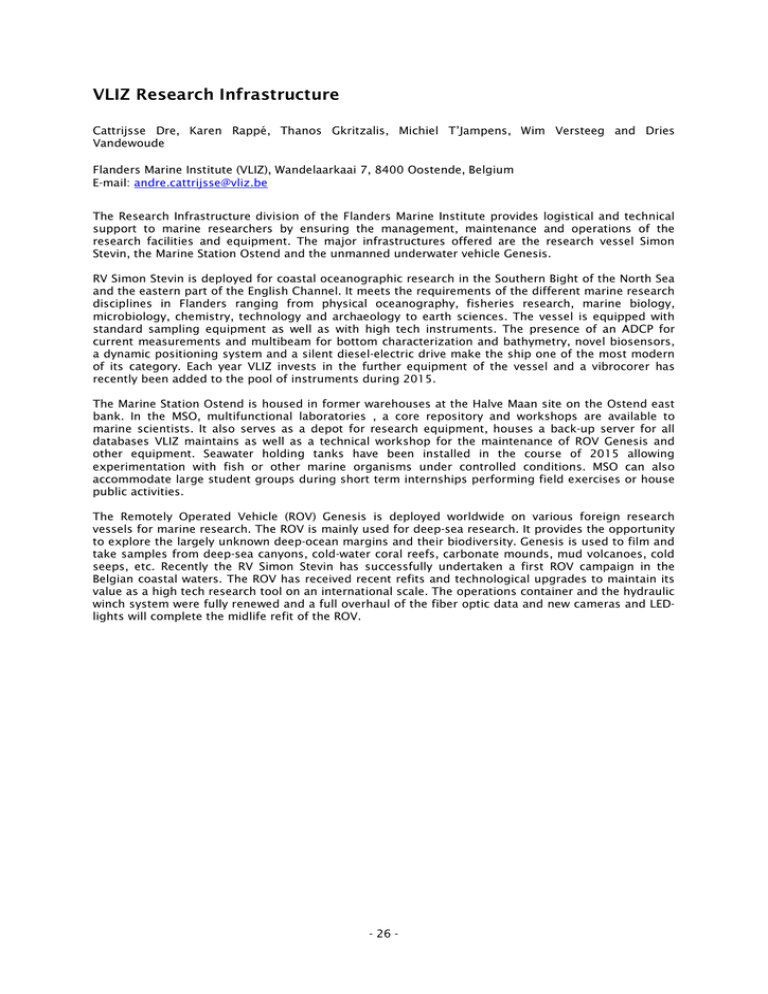
VLIZ Research Infrastructure Cattrijsse Dre, Karen Rappé, Thanos Gkritzalis, Michiel T’Jampens, Wim Versteeg and Dries Vandewoude Flanders Marine Institute (VLIZ), Wandelaarkaai 7, 8400 Oostende, Belgium E-mail: andre.cattrijsse@vliz.be The Research Infrastructure division of the Flanders Marine Institute provides logistical and technical support to marine researchers by ensuring the management, maintenance and operations of the research facilities and equipment. The major infrastructures offered are the research vessel Simon Stevin, the Marine Station Ostend and the unmanned underwater vehicle Genesis. RV Simon Stevin is deployed for coastal oceanographic research in the Southern Bight of the North Sea and the eastern part of the English Channel. It meets the requirements of the different marine research disciplines in Flanders ranging from physical oceanography, fisheries research, marine biology, microbiology, chemistry, technology and archaeology to earth sciences. The vessel is equipped with standard sampling equipment as well as with high tech instruments. The presence of an ADCP for current measurements and multibeam for bottom characterization and bathymetry, novel biosensors, a dynamic positioning system and a silent diesel-electric drive make the ship one of the most modern of its category. Each year VLIZ invests in the further equipment of the vessel and a vibrocorer has recently been added to the pool of instruments during 2015. The Marine Station Ostend is housed in former warehouses at the Halve Maan site on the Ostend east bank. In the MSO, multifunctional laboratories , a core repository and workshops are available to marine scientists. It also serves as a depot for research equipment, houses a back-up server for all databases VLIZ maintains as well as a technical workshop for the maintenance of ROV Genesis and other equipment. Seawater holding tanks have been installed in the course of 2015 allowing experimentation with fish or other marine organisms under controlled conditions. MSO can also accommodate large student groups during short term internships performing field exercises or house public activities. The Remotely Operated Vehicle (ROV) Genesis is deployed worldwide on various foreign research vessels for marine research. The ROV is mainly used for deep-sea research. It provides the opportunity to explore the largely unknown deep-ocean margins and their biodiversity. Genesis is used to film and take samples from deep-sea canyons, cold-water coral reefs, carbonate mounds, mud volcanoes, cold seeps, etc. Recently the RV Simon Stevin has successfully undertaken a first ROV campaign in the Belgian coastal waters. The ROV has received recent refits and technological upgrades to maintain its value as a high tech research tool on an international scale. The operations container and the hydraulic winch system were fully renewed and a full overhaul of the fiber optic data and new cameras and LEDlights will complete the midlife refit of the ROV. - 26 -
